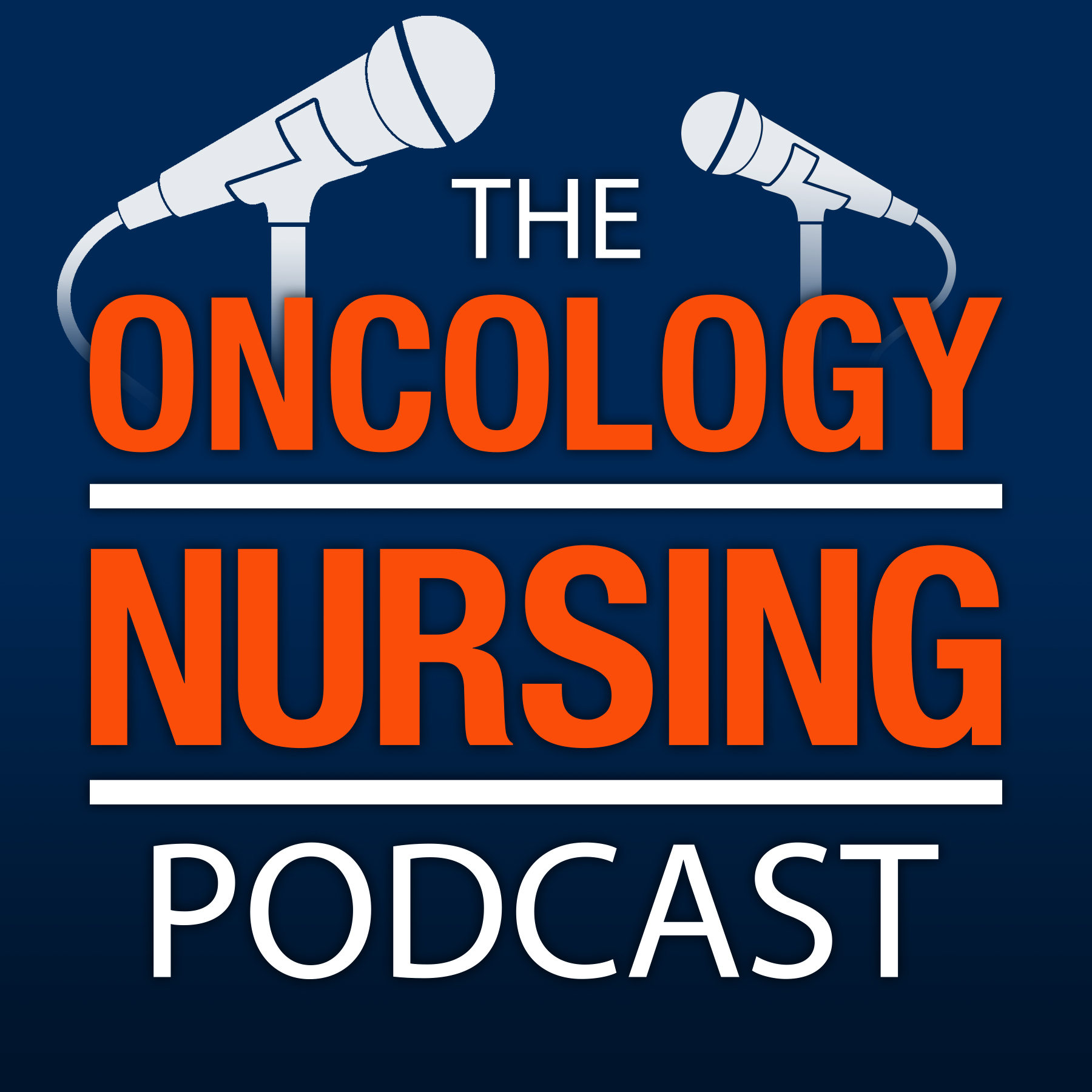
Episode 222: Ethical and Moral Dilemmas of Futility in Cancer Care and Treatment

The Oncology Nursing Podcast
Shownotes Transcript
“Let’s take time, invest time, in learning more about futility. Let’s invest some time in learning more about how to understand our patient’s goals, their family’s goals, what their values are,” Kathleen Turner, BSN, RN, CHPN, CCRN-CMC, clinical nurse in the medical-surgical intensive care unit at the University of California, San Francisco, Medical Center, told Stephanie Jardine, BSN, RN, oncology clinical specialist at ONS, during a discussion on a nurse’s approach to futility in cancer care and treatment. You can earn free NCPD contact hours after listening to this episode by completing the evaluation linked below.
Music Credit: "Fireflies and Stardust)" by Kevin MacLeod
Licensed under Creative Commons by Attribution 3.0
The planners and faculty for this episode have no relevant financial relationships with ineligible companies to disclose. ONS is accredited as a provider of NCPD by the American Nurses Credentialing Center’s Commission on Accreditation.
Episode Notes
The NCPD activity for this episode has expired, but you can still earn NCPD through many other Oncology Nursing Podcast episodes. Find a full list of opportunities).
Oncology Nursing Podcast:
Episode 78: Ethical Distress Impacts Nursing Practice)
Episode 135: ELNEC Has Trained More Than One Million Nurses in End-of-Life Care)
ONS Voice articles:
It Takes a Team to Confront Moral Distress)
Palliative Care Resources Comfort Nurses Through COVID-19 Stress, Dilemmas, and Grief)
Articles about ethics and communications)
Clinical Journal of Oncology Nursing articles:
When Does Treatment in Cancer Care Become Futile?)
How Does an Oncology Nurse Increase Moral Resilience During a Pandemic?)
Moral Distress: A Qualitative Study of Experiences Among Oncology Team Members)
Moral Distress: Identification Among Inpatient Oncology Nurses in an Academic Health System)
Oncology Nursing Forum article: Coping With Moral Distress in Oncology Practice: Nurse and Physician Strategies)
Journal of Nursing Education and Practice article: R.A.C.E. for Nurses: Cultivating Compassion in Nurse/Patient Interactions)
AACN Advanced Critical Care article: Ethical Discernment and Action: The Art of Pause)
JAMA article: Conflicts Regarding Decisions to Limit Treatment: A Differential Diagnosis)
Podcast: * Decompress*) by Anthony Back
Resources on Being Mortal:
Book by Atul Gawande)
VitalTalk resources) and IMPACT-ICU toolkit)
American Association of Colleges of Nursing: End-of-Life Nursing Education Consortium project)
To discuss the information in this episode with other oncology nurses, visit the ONS Communities).
To provide feedback or otherwise reach ONS about the podcast, email [email protected]).
Highlights From Today’s Episode
“Medical futility has traditionally been framed as care that can’t achieve its stated purpose. For instance, treating myocardial infarction with an antibiotic. There’s no way that that medicine is going to fix somebody’s heart attack. Often, though, I think it is something that we tend to invoke in our own practice when we feel like the care that we’re providing may not be able to achieve our goal for the patient—and I mean our personal goal as opposed to a clinical goal. And from there, moral distress arises.” Timestamp (TS) 02:40
“I think that there’s a tremendous opportunity for nurses to also actively participate in that conversation, especially oncology nurses, because we are with patients throughout their continuum of care and work with people for a long time and have more ‘in-the-room-time’ with our patients. I think of the nurses who had been giving my own mom her chemotherapy, where they spend so much time in the room with her and talking about her impressions of her care, what she wants, what’s important, what’s a meaningful result, and we can share that with our physician colleagues.” TS 04:38
“I think it’s the question of, ‘Because there is another thing that we can do, should we do it?’ That feeling of futility that clenches at our heart, at our guts, that’s a signal to us to stop and think, ‘What is the goal of treatment? Whose goal is that? And is what’s happening right now aligned with that goal, or have we somehow gone astray?’” TS 08:51
“When futility rears its head in our nursing practice, our first duty to ourselves and our patients is to take a pause. . . . Stop and reflect with a learner mindset on, ‘What it is I’m not seeing in this situation, whose voice is not being heard, what are my assumptions and biases?’ And then think about, ‘What’s another narrative that I can write about this situation?,’ trying to be very mindful of other patients that we’ve cared for in similar situations where we might be bringing or protecting these other patients onto this current patient.” TS 09:40
“Several years ago, when I was really going through some struggles in the ICU with this issue of futile or potentially inappropriate care, I went to a workshop and learned this mnemonic called GRACE to help clinicians remain compassionate and see what is the ethically appropriate thing to do in really fraught situations.” TS 16:18
“Let’s take time, invest time, in learning more about what is futility. Let’s invest some time in learning more about how to understand our patient’s goals, their family’s goals, what their values are. Taking some time to invest in communication training, ethics—if clinical ethics is something that’s a particular interest to you—that’s a great way to start, but also just really investing in learning how to communicate.” TS 36:18